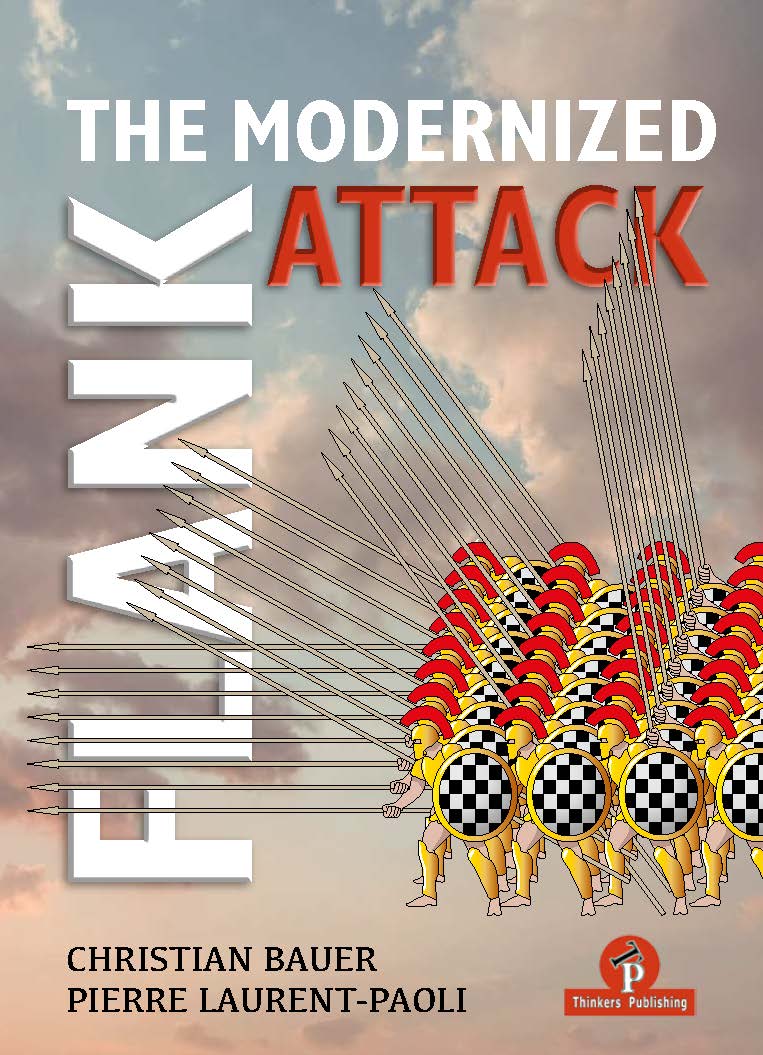Hardback – 364 pages
Teaser The Modernized Flank Attack
You can hardly find a more unconventional idea than pushing your g-pawn 2 squares down the board. Some may say it belongs to a backroom chess game in a café, some may say it belongs to olden times – back when the King’s Gambit was the main line after 1. e4 e5. But we are seeing more and more occurrences at the top-level.
Is it a coincidence ??
It’s safe to say that g2-g4 (or …g7-g5) is one of the most weakening moves available. As a matter of fact, the objectively worst first-move happens to be 1.g4, accompanied by an evaluation of -1.30 when running Stockfish 15 on low-depth (we did not see the point on letting it run in this position, it will probably get lower, that’s not good advertising).
Now, there are quite a few positions where g2-g4 (or …g7-g5) makes more sense and brings an interesting fight. The player has to be willing to take some considerable amount of risk, and that may be too much for some of us. The resulting positions often get messy and veer very much away from traditional paths, which means the expected number of mistakes gets higher, thus decreasing the drawing percentage.
Still, it’s important to remain somewhat objective and not to get too excited by the thrill of an upcoming attack. Yes, g-pawn pushes are aggressive, but can also very quickly turn out to have disastrous consequences. “I wish I could play g4-g2”, is usually a sign the experiment has gone wrong. The book is aimed at covering a wide range of chess openings. We decided to showcase the different categories of g4 (…g5) one may meet in the early stage of the opening, no matter if the idea is strong, interesting or quite unadvisable (bad, you may also say).
Most of the time, g4 (…g5) won’t be the best move, but we will try to show that the value of surprise and the tendency of players to react solidly to aggression can matter as well. Also, we have decided not to include any Sicilians, as the g2-g4 push has become so frequent there, and in many variations deeply analyzed already.
Over the 50 games that we picked, the 3 main reasons why the g-pawn is being launched are : 1) Attacking a short-castled king with a hook created by h2-h3 (or …h7-h6) 2) Challenging the stable position of a Nf3 (or … Nf6). It becomes stronger when the knight doesn’t have a good square to hop to. 3) Seizing space on the kingside. The more you dive into the examples, the more you’ll see that it’s a mix of the 3, with one reason prevailing. We wish you happy reading and hope that you’ll implement some of these lines into your play!
Pierre Laurent-Paoli & Christian Bauer









Reviews
There are no reviews yet.